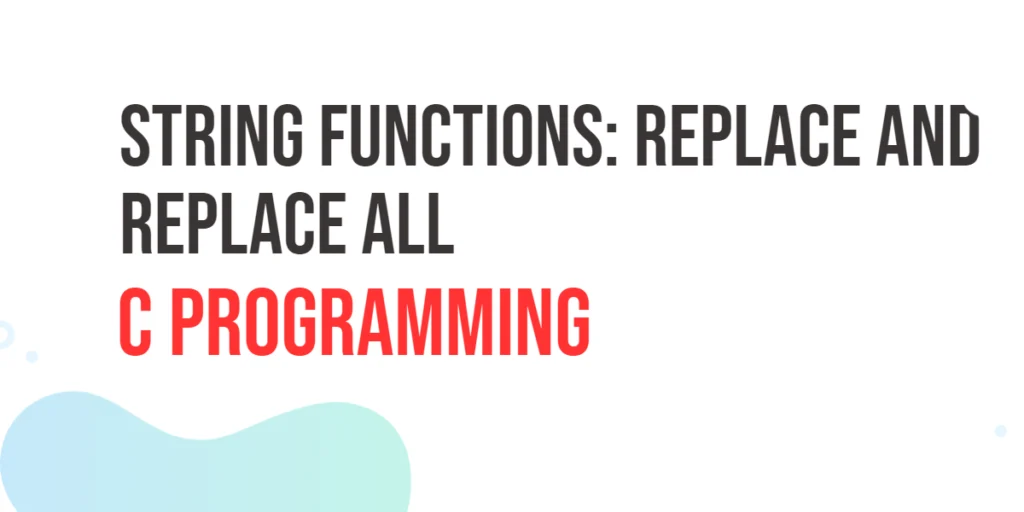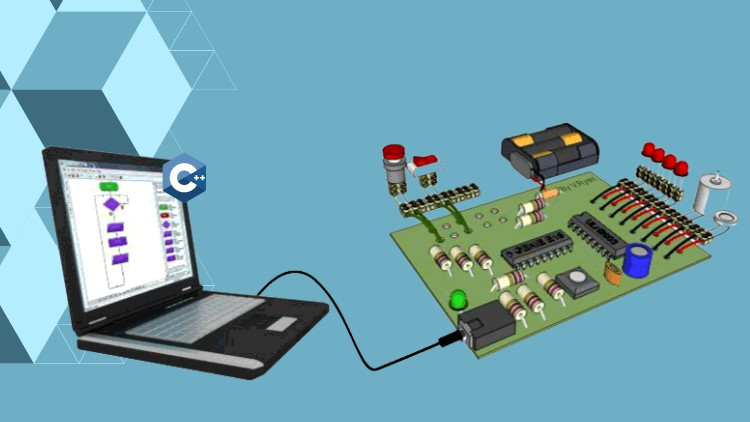Strings play a crucial role in programming, serving as a fundamental data type for storing and processing textual information. Imagine a scenario where you have a string, and you want to change specific characters within it. This is where string replacement functions become invaluable. The ability to replace characters or substrings within a string is a powerful tool for developers, enabling them to modify text dynamically based on certain conditions.
The replace Function
Let’s start by exploring the basic replace function in C. This function is designed to replace the first occurrence of a specified substring within a given string. Here’s a simple example:
#include <stdio.h>
#include <string.h>
void replace(const char* str, const char* substring, const char* replacement);
int main(int argc, char* argv[]) {
char str[50] = "Programming";
char substring[] = "r";
char replacement[] = "*";
replace(str, substring, replacement);
puts(str);
return 0;
}
void replace(const char* str, const char* substring, const char* replacement) {
char* _substr = strstr(str, substring);
if (_substr == NULL && strcmp(substring, replacement) == 0)
return;
sprintf(_substr, "%s%s", replacement, _substr + strlen(substring));
}In this example, we have a string “Programming,” and we want to replace the first occurrence of the letter “r” with an asterisk. The replace function uses the strstr function to find the first occurrence of the specified substring. It then uses sprintf to perform the replacement.
Replace All Function in C
While the replace function is useful for replacing the first occurrence, it may not be sufficient if you need to replace all occurrences of a substring within a string. This is where the replace_all function comes into play.
#include <stdio.h>
#include <string.h>
void replace_all(const char* str, const char* substring, const char* replacement);
int main(int argc, char* argv[]) {
char str[50] = "Programming";
char substring[] = "r";
char replacement[] = "*";
replace_all(str, substring, replacement);
puts(str);
return 0;
}
void replace_all(const char* str, const char* substring, const char* replacement) {
char* _substr = strstr(str, substring);
while (_substr != NULL && strcmp(substring, replacement) != 0) {
sprintf(_substr, "%s%s", replacement, _substr + strlen(substring));
_substr = strstr(str, substring);
}
}In this example, we want to replace all occurrences of the letter “r” with an asterisk in the string “Programming.” The replace_all function uses a while loop to repeatedly find and replace occurrences until no more instances of the substring are found.
Conclusion
In conclusion, the replace and replace_all functions provide valuable tools for string manipulation in C programming. These functions empower developers to dynamically modify strings, opening the door to a wide range of possibilities in text processing. Whether you need to replace a single occurrence or all occurrences of a substring, these functions are essential additions to your programming toolkit. For more content, please subscribe to our newsletter.







